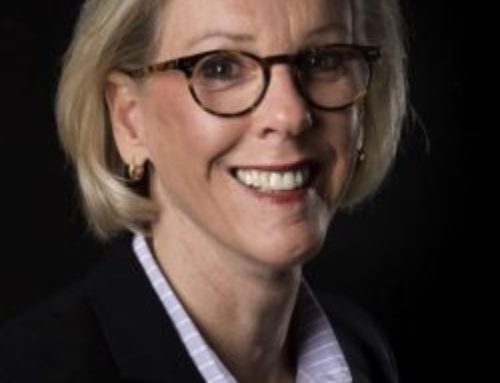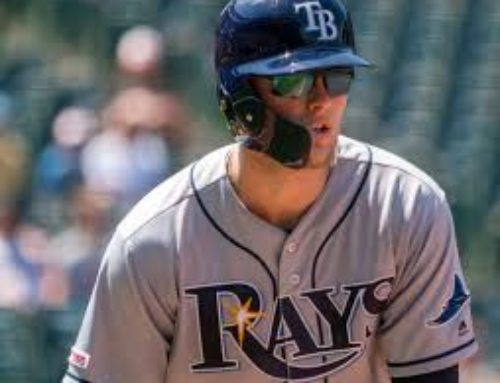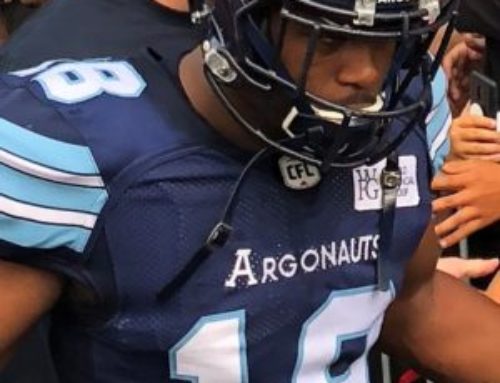By JOEY JOHNSTON
Inside Pitch
(c) Tampa Bay Rays. Originally published May 3, 2017.
Just before Rays center fielder Kevin Kiermaier agreed to a six-year, $53.5-million contract that surpassed his greatest baseball fantasy, he called his father back home in Fort Wayne, Indiana.
Finally, he could say the words:
“Dad, I don’t want you going into work anymore.’’
Silence on the other end.
“I’m serious, Dad. Give them your two-week notice. You’ve always given your family everything we’ve needed. Now it’s time for you. You’re done working.’’
More silence.
Jim Kiermaier, an old-school Midwesterner, had been a steelworker all his life. He consistently put in 12-to-14-hour days at the warehouse, sometimes pulling the overnight shift, always volunteering for overtime. After the winter, he worked landscaping on the side, regularly cutting nearly three-dozen lawns, chopping down trees, cleaning out gutters.
Typical day: He was up before dawn and worked outside until early afternoon. Then he would clean up and head to his regular job, usually finishing well after midnight. He slept when he could.
“Then we’d do ‘er all over again,’’ the father says. “That schedule was necessary to get by, not to get ahead … whatever it took.’’
Whatever it took to pay the bills and to put his three sons through Catholic school. Whatever it took to give Kevin his best shot at baseball, whether it was bats, gloves or just carting him around the region for travel ball, which usually required some hotel nights.
“I’ve been working all my life and that’s all I know,’’ says Kiermaier’s father, 56. “When Kevin called and did this, it was a shock. You work your whole life, then you’re suddenly done? It was weird.
“He always said if he ever had the chance to help us out, he would. We didn’t ask for it. He’s just a good man. I’m proud of how he’s living his life.’’
What a life it has become.
Nine years ago, Kiermaier thought he was playing out the string on his athletic career as a high-school senior. Professional baseball? He couldn’t even get a college offer. He thought he might become a police officer.
And now?
Kiermaier’s grit, hustle and work ethic have earned him respect throughout the big leagues. He earned his second consecutive Rawlings American League Gold Glove Award for stellar performances in center field.
“Who thought I would have an offseason with four pretty monumental things in my life … and the Gold Glove would probably have the least value of importance?’’ Kiermaier says.
Just before spring training, Kiermaier got engaged to “the woman of my dreams,’’ proposing to his girlfriend, Marisa Moralobo, in the backyard of her parents’ home (they have set a Nov. 10 wedding date). He has put down roots, purchasing a home in South Tampa. The Rays affirmed their belief in him with a long-term contract that gives him security — and renewed motivation.
“I always play for my teammates, my team, my family and my loved ones,’’ says Kiermaier, who celebrated his 27th birthday on April 22. “It’s such a high point in my life right now.
“I’ve been rewarded with a beautiful loving fiancee, the ability to purchase a dream home and a new contract. I’ve put in a lot of work, but I’m still not satisfied. There’s plenty left in my tank. I want to be the best possible person, on and off the field. That got me to where I am today. I don’t plan on changing that. I’m staying true to myself. I’m ready to work hard.’’
His Tropicana Field walk-up song — “Everyday I’m Hustlin’ ‘’ by Rick Ross — is not a coincidence.
He’s hustling.
Every single day.
“I love the way Kevin goes about his business and you know the fans love it, too,’’ Rays outfielder Peter Bourjos says. “Fans really don’t want to see someone dog it (running) down the line or not go hard for a ball in the gap.
“They come here expecting a certain level of play and passion for the game. He gives it to them every single night. What he does translates into victories. I’m sure of that.’’
When Kiermaier dives to turn a potential bloop hit into an out or races to the wall for a perfectly timed snag of a would-be extra-base hit, it’s more than just a nice clip for the ESPN highlight reel. With advanced baseball metrics, it’s documented larcency.
In 2015, he led all major-league players with 42 Defensive Runs Saved (DRS), the highest mark since Baseball Info Solutions began tracking the statistic in 2003. Last season, his DRS rating was 25, second in the MLB, even though he missed 48 games with a fractured hand.
Meanwhile, he led the Rays last season with 5.5 Wins Above Replacement (WAR), which measures offensive, defensive and base-running contributions. In 2015, his WAR ranking was 7.4, third in the AL behind Angels center fielder Mike Trout (9.4) and Blue Jays third baseman Josh Donaldson (8.8).
Even more meaningful are Kiermaier’s intangibles, such as the appreciation shown from the Rays’ pitching staff.
“We had heard so much about him, even when he was in the minor leagues,’’ Rays pitcher Alex Cobb says. “Coaches were saying he was the best defensive player they had ever seen, hands down.
“And we’re like, ‘OK, who is this guy? How can he be that good?’ Well, after the first week or so, his first few games, we all saw it too.’’
Cobb vividly remembers the start of Kiermaier’s rookie season in 2014. It was in Cincinnati. Cobb surrendered a two-out single up the middle to Brandon Phillips and Joey Votto chugged around third, heading for home.
“We knew what kind of arm he had and when I saw (Votto) rounding the bag, I thought to myself, ‘What are you doing? Why would you even run on Kiermaier?’ ‘’ Cobb says. “But nobody knew who Kevin Keirmaier was yet. They were about to find out.’’
Kiermaier charged the hit, scooped it on the run and delivered a perfect one-hop strike to nail Votto at the plate.
“As a pitcher, you love to have someone like that in the outfield,’’ Cobb says. “But whatever the metrics say, it doesn’t give the whole picture on his value. Just the energy he brings to the clubhouse and out on the field, the rest of our team feeds off that.’’
Rays pitcher Matt Andriese remembers a catch against the Yankees last season when Kiermaier took off “from what seemed like the beginning of the warning track’’ and jumped into the wall for an acrobatic grab.
“That’s just one of many he made for me,’’ Andriese says. “It’s nice to know he’s roaming out there. It’s very comforting. He’s nothing but the best. When anything is hit near him, I just know he’s going to catch it.’’
Rays pitcher Chris Archer marvels at Kiermaier’s athleticism, envisioning him as a playmaking point guard in basketball or a game-breaking wide receiver in football.
“He’s special,’’ Archer says. “It’s easy to see why the people love him.’’
As a rookie, Kiermaier felt that love, viewing it with wide-eyed amazement.
“I can’t believe they have Rays jerseys and shirts with my name on it and people are buying them,’’ he said back then. “I never imagined what’s happening.’’
Now, before a typical game, Tropicana Field is awash with No. 39 Kiermaier jerseys. It’s young and old, men and women, toddlers and grandmothers, all shapes and sizes, bonded by their fascination with the player who knows only one speed — full-throttle.
“He plays like I want to play,’’ says 14-year-old softball center fielder Elly Doyle, who was visiting from Kiermaier’s hometown, Fort Wayne, and attending her first Rays game on Opening Day. “He hustles so much.’’
“He just seems really down to earth, a guy with true Midwestern values and good morals,’’ says Clearwater’s Deb Celletti, a nurse with BayCare Health Systems. “He’s not what the big stars sometimes are. He’s very quiet and polite. Very grounded. I think he’ll always do the right things off the field. He seems approachable.’’
Ken O’Connell, an automotive repair shop manager in Pinellas Park, said he focuses on Kiermaier because it’s a reminder of the enthusiasm and effort you’d see from a Little Leaguer.
“He plays the game 100 percent all day long and that’s why I like him,’’ O’Connell says. “He punches a base hit to the outfield and if you hesitate or bobble it slightly, it’s a double. It doesn’t cost a dime for anybody to hustle and go hard, but I’ve never seen anybody do it like he does.
“I love his effort. I love how much he cares. Even when he hits the ball back to the pitcher, he’s still sprinting to first base.’’
O’Connell remembers the final home game of 2014, when fans came onto the field and claimed player jerseys as part of a team promotion.
“After that was over, nearly an hour later, Kiermaier was still out there signing autographs,’’ O’Connell says. “He gives back. He appreciates the fans. It’s like he’s one of us. He’s real.’’
Kiermaier is never more real than when he returns to Fort Wayne. He still sleeps in his boyhood bedroom at the 1,600-square-foot, two-story home where he grew up with his brothers, Dan, who works as a Wrigley Field groundskeeper in Chicago, and Steve, who works for the City of Fort Wayne.
A part of him will always be that Midwestern kid, but now he has made the Tampa Bay area his permanent residence. The community’s welcoming presence instantly made him feel at ease.
“The Tampa Bay area is perfect for me,’’ Kiermaier says. “My fiancee is from here, so she loves it, too. I’m so thankful the Rays reached out and gave me a contract because they like having me here. The feeling is mutual. I like being here.
“When you’re constantly told by people (fans) how much you’re liked and loved, it’s a great feeling. The fans show me so much respect and I want them to know whenever they come to see Kevin Kiermaier play, they’re going to get 100 percent. I couldn’t imagine a better situation.’’
Kiermaier paused, then grinned.
“It’s like a dream.’’
How did the big-league dream happen? For Kiermaier, it was ability, improvement, good fortune and some perfect timing as well.
When his senior season wound down at Bishop Luers High School in Fort Wayne, he had no college scholarship offers and seemingly no baseball future. As he pitched in the playoffs, it was a tied game in extra innings, bases loaded and a 3-2 count. Kiermaier delivered high and outside, a certain ball four and perhaps a career-ender.
The batter swung and missed.
The game played on. Bishop Luers prevailed.
It kept winning and winning and winning … all the way to the state title. During the run, Matt Kennedy, the coach at two-year Parkland College in Champaign, Ill., showed up. Kennedy had never heard of Kiermaier, but quickly took to him and offered a junior-college destination.
Then another quirk of fate: At Parkland, Rays scout Tom Couston arrived to watch another player, but noticed Kiermaier.
“First thing he (Couston) said to me was, ‘I like what you’re doing,’ and I’m like, ‘What am I doing?’ ‘’ Kiermaier says. “I called my parents and said, ‘A pro scout talked to me today.’ I couldn’t believe it. I had never been that guy, never been any kind of prospect.’’
Couston saw things almost no one else noticed — the work ethic, the bat speed, the defense. He picked up on Kiermaier’s maniacal training, such as late-night agility drills in a parking lot.
Once, Couston needed a home-to-first time for Kiermaier, who kept getting walked. Couston finally asked Kiermaier if he could sprint to first regardless on the next at-bat, even clearing that request with the opposing coach. Sure enough, Kiermaier walked again, but he was off and flying to first.
“It was a 4.13 (home to first), I’ll never forget it,’’ Couston says. “He was my guy. I had to find out if he was our guy (with interest from the Rays’ brass), but I felt good about it.’’
In 2010, Kiermaier held a second-day draft party at his home because he was projected anywhere from the eighth to 15th round. Then … nothing.
One by one, family and friends left, some offering sympathetic pats on the back. Kiermaier was devastated. On the draft’s final day, he watched alone on the Internet as he went in the 31st round to the Rays with the 941st overall selection.
“Basically, 30 teams passed on me 30 different times,’’ Kiermaier says. “So I’ve always had a chip on my shoulder. I want other teams to think, ‘Hey, we could’ve had this guy. What did we miss?’ ‘’
Couston assured Kiermaier his ability was far superior to the 31st round (and a $75,000 signing bonus), but the player still used the draft as motivation. When Kiermaier was batting .241 with the Class A Bowling Green Hot Rods, he told Couston he was driven to make it big so he could buy his parents a new home.
“He’s just wound a certain way and his determination makes things happen,’’ Couston says. “He had some dreams.’’
Now many of them are coming true.
Rays manager Kevin Cash says Kiermaier is an “elite player.’’ Rays third baseman Evan Longoria talks about “five-tool potential.’’
Moralobo, his fiancee, marvels at “how many people just seem to love him. That makes me so happy. He’s truly a great guy. He has worked so hard.’’
Back in Fort Wayne, that was the only way Kiermaier knew.
“I’m so grateful for the childhood I had and the parents I had and how nothing was ever just handed to me,’’ Kiermaier says. “My parents gave us all we needed, but didn’t spoil us by any means.
“It taught me that a lot of good comes from hard work and making good choices. I got to the big leagues, I think, by outworking people and that’s how it’s going to stay. That’s who I am and who I will always be.’’
Kiermaier’s mother, Chris, still works part-time as a hospital administrative assistant. At first, Kiermaier’s father felt guilty about retiring, but now he likes his newfound freedom.
He no longer has to operate the saw at O’Neal Steel or push himself to physical exhaustion. Now he gets full nights of sleep and takes care of himself, working out regularly at the YMCA.
“I always told my parents it would be so fulfilling to me when I can let them relax in the second half of their life because I owe them that,’’ Kiermaier says. “With this profession, I’m lucky enough to be able to do that.
“All the miles they put on the cars driving us to practices and other functions, all the sacrifices, the fact that they were always there for us and we never even had a babysitter, they helped me achieve my dreams.’’
He’s engaged to the love of his life. He has a beautiful home and a new contract. He’s a wildly popular baseball star.
“My life seems about perfect right now,’’ Kiermaier says. “But I won’t forget what got me here. I’m always going to be working hard.’’
Working hard. That sounds about right.
After all, it’s the Kiermaier family way.





